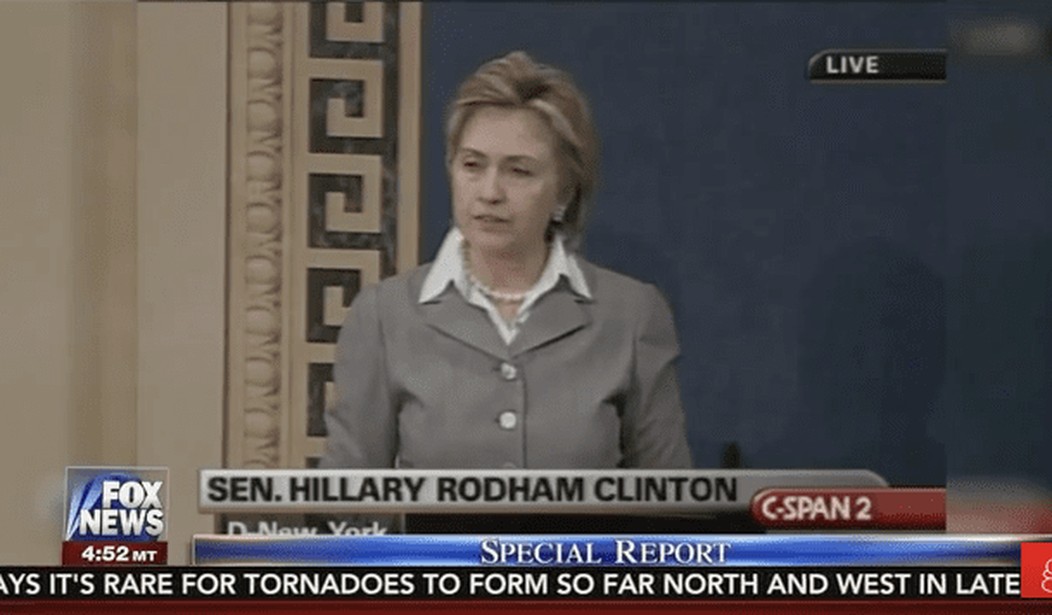WASHINGTON – An official with a watchdog group that keeps an eye on secrecy within the federal government told a House panel that the document classification system costs billions of dollars and that many of the steps taken to hide information from the public’s eye is unnecessary.
Scott Amey, general counsel for the Project on Government Oversight, told members of the House Oversight and Government Reform Committee that the security classification system cost $16.2 billion during fiscal year 2015 and that entities outside of the federal government spent an additional $1.3 billion just to comply.
There is “potentially billions to be saved by solving our over-classification problem,” he told lawmakers.
Amey noted that “the tension between openness and secrecy in government continues to be extremely high.” Abuse of the Freedom of Information Act (FOIA), overclassification of documents, retroactive classification, quasi-classification, and suppression of whistleblowers “are all-too common.”
“Even with some of the post-9/11 improvements to promote information sharing and reduce overclassification, it might be time for a comprehensive review to ensure we are on the right path,” he said.
The hearing was called to examine overclassification of national security information and other government information, including controlled unclassified information and other designations, and determine the causes and unintended results of excessive restrictions.
The issue has drawn attention before. Congress established the Commission on Protecting and Reducing Government Secrecy in 1994, with the acknowledgement that “a tension has existed between the legitimate interest of the public being kept informed about the activities of its government and the legitimate interest of the government in certain circumstances in withholding information; in short, between openness and secrecy.”
Twenty years later, the issue persists. The panel, known as the Moynihan Commission after the late Sen. Danial Patrick Moynihan, a New York Democrat, issued 16 recommendations. Most have never been fully implemented, including one to clarify the use of the term intelligence “source” and methods to better explain the appropriateness of classification protections.
“I think we all agree – some of this stuff is ridiculous and there’s an incentive to just simply cake on more classification,” said Rep. Ron DeSantis (R-Fla.), chairman of the House Oversight Subcommittee on National Security. “Some of this stuff isn’t even classified, it’s being protected, but at the same time I just think it’s important to recognize that there is a legitimate reason to [classify].”
Amey told lawmakers that at times the reason information is classified “is not the legitimate need for secrecy, but the concealment of embarrassing information.”
“Unfortunately, unjustified secrecy creates public distrust in government, impedes the sharing of information within the government, and raises questions about the protection of legitimate secrets,” he said.
The Project on Government Oversight has been told that a lack of clear authority and standards exists regarding classification. Amey said that leads to agencies often making different classification determinations.
“It’s not uncommon for different agencies to have disagreements about whether to classify information or not,” Amey said. “This issue was recently highlighted in the Hillary Clinton email controversy, with the State Department and the intelligence community holding differing opinions about the classification status of some of her emails.”
Classification “isn’t an exact science,” Amey said, asserting that there is a lack of clarity within the intelligence community “about what constitutes intelligence sources and methods, which can result in overclassification.” In fact, a “broadly worded” provision in the National Security Act of 1947 to protect intelligence sources and methods from unauthorized disclosure “has essentially required that nearly every piece of information in the intelligence community be concealed.”
William Leonard, former director of the Information Security Oversight Office in the Pentagon, told the panel that the ability and authority to classify national security information “is a critical tool at the disposal of the federal government and its leaders to protect our nation and its citizens.”
“However, when negligently or recklessly applied, overclassification of information can undermine the very integrity of the system we depend on to ensure that our nation’s adversaries cannot use national security-related information to harm us and can place at increased risk truly sensitive information.”
Leonard argued that the executive branch “is both incapable and unwilling to achieve true reform in this area.” Since 9/11, the federal government has developed “new and novel” reasons to hide information, amounting to “unchecked executive power.”
“No one should ever be surprised that the authority to classify information ends up being routinely abused, either deliberately or not, in matters both big and small,” Leonard said.
Leonard noted that the penalties for improperly classifying a document are as severe as disclosing classified information. But while disclosures are aggressively prosecuted, improper classification is not, creating a “when in doubt, classify” culture within the federal government.
Thomas Blanton, who oversees the National Security Archive at George Washington University, urged lawmakers to develop legislation “to govern an out-of-control, dysfunctional, counterproductive classification system.”








Join the conversation as a VIP Member